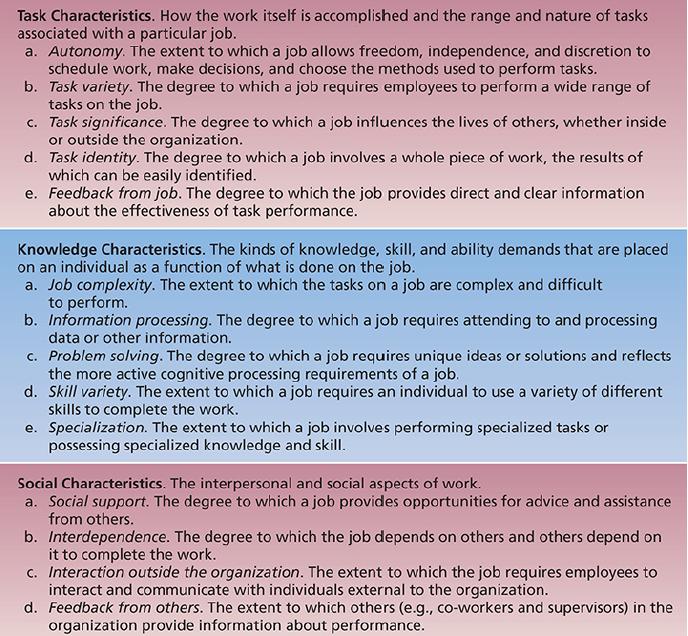Question:
After graduating from business school, Sabrita received a job offer from a large accounting firm to work as a junior accountant. She was ranked in the top 10 of her class and could not have been happier.
During the first six months, however, Sabrita began to reconsider her decision to join a large firm. This is how she described her job: Every day her supervisor brought several files for her to audit. He told her what order to do them in and how to plan her workday. At the end of the day, the supervisor would return to pick up the completed files. The supervisor collected the files from several other junior accountants and put them all together and completed the audit himself. The supervisor would then meet the client to review and discuss the audit. Sabrita did not ever meet the client, and her supervisor never talked about his meeting or the final report.
Sabrita felt very discouraged and wanted to quit. She was even beginning to reconsider her choice of accounting as a career.
Evaluate Sabrita’s job on each of the work design characteristics described in Exhibit 6.7 . What work design characteristics are particularly low? Based on your evaluation, what factors do you think are contributing to Sabrita’s job attitudes and intention to quit?

Transcribed Image Text:
Task Characteristics. How the work itself is accomplished and the range and nature of tasks
associated with a particular job.
a. Autonomy. The extent to which a job allows freedom, independence, and discretion to
schedule work, make decisions, and choose the methods used to perform tasks.
b. Task variety. The degree to which a job requires employees to perform a wide range of
tasks on the job.
c. Task significance. The degree to which a job influences the lives of others, whether inside
or outside the organization.
d. Task identity. The degree to which a job involves a whole piece of work, the results of
which can be easily identified.
e. Feedback from job. The degree to which the job provides direct and clear information
about the effectiveness of task performance.
Knowledge Characteristics. The kinds of knowledge, skill, and ability demands that are placed
on an individual as a function of what is done on the job.
a. Job complexity. The extent to which the tasks on a job are complex and difficult
to perform.
b. Information processing. The degree to which a job requires attending to and processing
data or other information.
c. Problem solving. The degree to which a job requires unique ideas or solutions and reflects
the more active cognitive processing requirements of a job.
d. Skill variety. The extent to which a job requires an individual to use a variety of different
skills to complete the work.
e. Specialization. The extent to which a job involves performing specialized tasks or
possessing specialized knowledge and skill.
Social Characteristics. The interpersonal and social aspects of work.
a. Social support. The degree to which a job provides opportunities for advice and assistance
from others.
b. Interdependence. The degree to which the job depends on others and others depend on
it to complete the work.
c. Interaction outside the organization. The extent to which the job requires employees to
interact and communicate with individuals external to the organization.
d. Feedback from others. The extent to which others (e.g., co-workers and supervisors) in the
organization provide information about performance.








